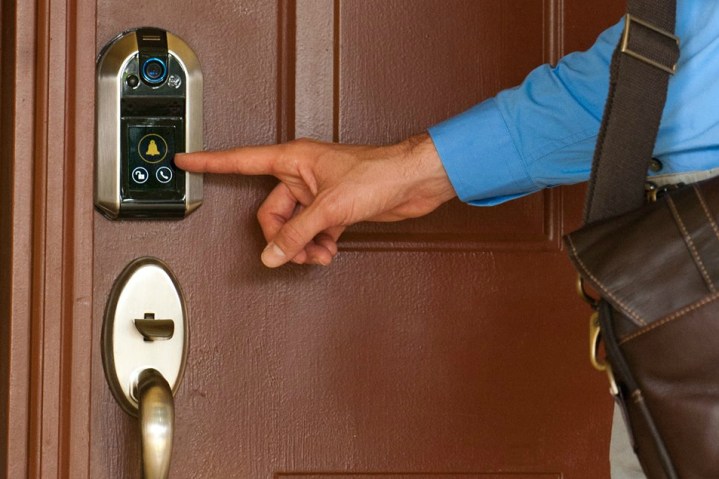
Smart locks are meant to make life more convenient for people. There’s just one problem: That doesn’t apply if the lock is forced on you by someone else. Tenants in a New York City apartment objected to the landlord’s decision to install Latch smart locks to their homes. A legal challenge from those residents has won them the right to be given the option of using a physical key instead of the smart locks, CNET reports.
The entire issue started in September when the landlords of a New York City building decided to replace locks in their apartment complex with internet-connected locks from Latch. To use the locks, tenants were required to download an app to their smartphone that would allow them to access their apartment.
That requirement rubbed some residents the wrong way. Some raised issues of privacy stemming from the smart locks. Would landlords be able to track their comings and goings through the app? Would personal information and other potentially sensitive information be collected by the app, which they are required to use just to enter their own apartment? Others simply objected to the needless complexity of the smart locks. Mary Beth McKenzie and her husband, Tony Mysak, led the lawsuit against the landlords, citing the 93-year-old Mysak’s struggles with using the smartphone app. He found it difficult to use and was effectively trapped in the house because of it.
A judge in New York City overseeing a settlement between the residents and the landlords sided with the tenants and ordered the building managers to provide physical keys for apartments. The option will be made available as an alternative for those who would like to opt out of the smart lock. The case won’t set a legal precedent, seeing as it is a settlement and not a ruling handed down by a court, but it does represent a win for those who would like to avoid potentially invasive technology being forced on them.
“This is a huge victory for these tenants and tenants throughout New York City. These types of systems, which landlords have used to surveil, track and intimidate tenants, have been used frequently in New York City,” Michael Kozek, the attorney representing the tenants in Manhattan, said in a statement. “These tenants refused to accept the system, and the negative impact it had on their lives. Hopefully they will be an inspiration for other tenants to fight back.”
Editors' Recommendations
- Yale’s newest smart lock is designed for renters
- Echo Hub vs. Echo Show 15: Which is the best smart home gadget?
- Nest Hub Max vs. Echo Show 10: which is the better smart display?
- Nest Secure will be discontinued in April – prepare your smart home with these steps
- Daisy is an installation and repair company designed for your smart home


